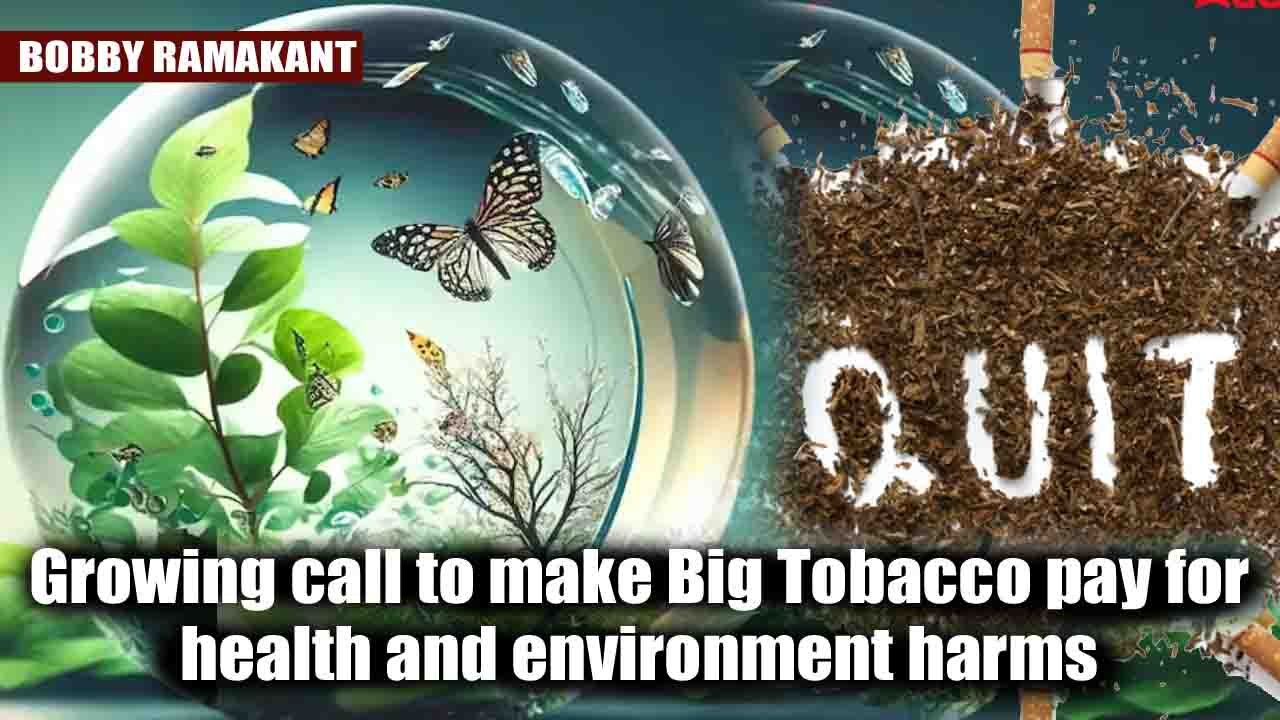Health
Pandemic is not over yet by a long shot: Deaths rose every week in 2022
Pandemic is not over yet by a long shot: Deaths rose every week in 2022
– SHOBHA SHUKLA, BOBBY RAMAKANT – CNS
Global health thought leader Dr Tim France rightly tweeted, “Here is the WHO stating explicitly what most people I know are saying to one another privately: Is not it really risky to lift all COVID-19 related measures now, with the virus still circulating in high levels? Clearly, in these global experts’ minds, the answer is an emphatic yes.”
He was referring to the World Health Organisation (WHO) which has warned “Some countries are lifting all public health and social measures despite high numbers of COVID-19 cases and deaths.” WHO experts have instead called for a slow approach.
While several countries are relaxing COVID-19 prevention and control measures, the weekly number of deaths have been increasing week after week in 2022. As per the latest epidemiological update of WHO, there were more than 75,000 deaths worldwide due to COVID-19 in the second week of February 2022- almost double of the weekly deaths at the start of 2022.
According to the WHO, 41000 people had died due to COVID-19 in the first week of January 2022, 43000 in the second week, 45000 in the third week, 50000 in the fourth week, and 59000 by the last week. Over 68000 people died due to COVID-19 in first week of February 2022, and 75000 in the second week.
The number of new weekly deaths in the second week of February 2022 had increased in four out of six WHO geographic regions: 38% increase in Eastern Mediterranean, 27% rise in Western Pacific, 14% rise in Africa, and 5% rise in the Americas. Europe reported similar number of deaths as the first week of February whereas southeast Asia reported a decline of 9%.
Let us also have a look at those countries that recorded most deaths (over 1000) in the last seven days (in descending order): US, Brazil, Russia, India, Italy, France, Turkey, Poland, Ukraine, Argentina, Mexico, Peru, Germany, Colombia, Japan, UK, Iran, and South Africa.
Is it true? #EveryLifeMatters
Even one untimely death is a death too many. We have no excuse today after more than a year of vaccination against COVID-19 that is proven to reduce the risk of serious outcomes of the disease, deaths, as well as the risk of suffering from long-COVID.
More disturbing is that our worst fears about the official count of COVID-19 deaths and new cases being gross underestimates may be coming true. For example, India’s official death toll is over half a million deaths due to COVID-19 but a study published in the Science journal estimated that this could be six times more at 3.2 million – which is more than half of all the total deaths worldwide due to COVID-19 as of now (5.8 million).
The number of new COVID-19 infections too have not declined to let go off the guard so quick: Just two-three weeks ago, the world recorded the highest-ever weekly number of new infections – 22 million. Last week in February 2022, we had over 16 million new cases worldwide. This is by no means a small number, rather it warrants continued thrust on preventing infection transmission as well as equitable vaccination and other rights-based social and public health measures. Moreover, let us remember that COVID-19 testing has dipped in several countries. So the actual number of new infections could be much higher.
Agrees WHO’s Dr Maria Van Kerkhove: “I think we need to be careful about interpreting too much of this downward trend. Certainly, that is in the right direction, but it is likely that there is a large number of cases that we are missing. The bigger concern right now, I think, is the still increasing number of deaths. It is the sixth week in a row that we are seeing reports of increasing deaths from COVID-19.”
She added: “Increasing deaths for six weeks in a row is not the situation we should be in right now… many countries have really dropped testing. So, we are concerned that there still is too much (virus) circulation that is happening at quite an intense level and if you have huge numbers of cases, like we are seeing, the opportunities for even more variants are higher. This is quite concerning to us.”
Alerting those who are trying to do away with infection prevention a bit too soon, Dr Michael Ryan, Executive Director of the WHO Global Health Emergencies Programme, said “The virus would not disappear – that opportunity is not there. We are trying to end the public health emergency associated with that virus and getting to a point where enough people are protected by full vaccination, strong clinical management, and other social and public health measures”.
Failing to prevent infection transmission or to vaccinate equitably will continue to cause unnecessary human suffering and avoidable deaths. This can never be acceptable in any sane society, so do we believe, said CNS (Citizen News Service) patron Dr Sandeep Pandey.
Know your risk, lower your risk
“We have always said: know your risk, lower your risk. So, avoiding infection as best we can and, at the same time, getting vaccinated” reemphasized Dr Michael Ryan.
Masks work (to reduce infection spread) if three-layered masks are worn properly. Hand hygiene, maintaining physical distancing and other public and social measures as required are important too. We all need to lower our risk of getting infected. Just like we cycle cautiously on the road for our and everyone else’s safety, we need to be more proactive in knowing our risks of getting infected, and do our two bits to lower it.
“Masks are a tool, vaccines are a tool, distancing, hand hygiene, all of that is a tool but information is one of the most critical pieces of power that you can have to keep you safe” rightly said Dr Ryan.
Is it economy versus public health?
We all saw how the pandemic brought the global economy to a screeching halt. If we continue to pitch economy against health or climate, then we will do ‘more of the same’ blunders that forced us into humanitarian crises and emergencies like the pandemic. It is high time governments at every level walk the talk on tall promises of integrated development ‘where no one is left behind.’ Because my health security depends on the health security of everyone else on the planet and so do my economic security, social security, and human rights for a life with dignity.
Shobha Shukla, Bobby Ramakant – CNS (Citizen News Service)
(Shobha Shukla and Bobby Ramakant lead the editorial team at CNS (Citizen News Service). Follow them on Twitter @Shobha1Shukla and @BobbyRamakant)




